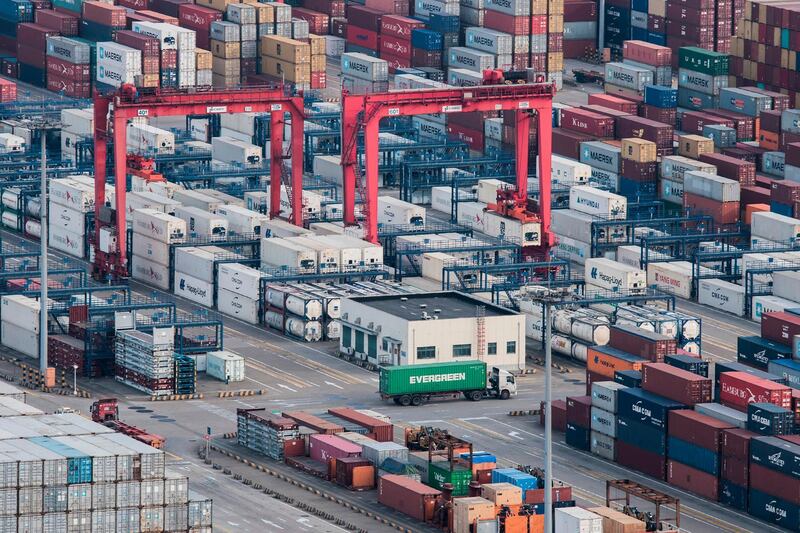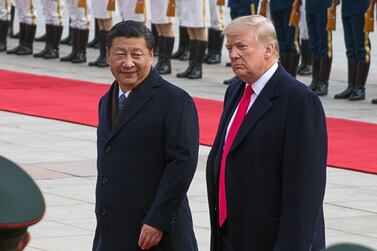Economists typically criticise import tariffs, because they result in higher prices for consumers.
The Arabian Gulf countries have generally subscribed to this view. However, as the Gulf countries look to diversify their economies, is it time to consider imposing temporary tariffs to develop their own domestic industries? A new paper by Reka Juhasz (Columbia University, US) suggests that this may be the case.
Let us start with the basics of trade. Complete self-sufficiency at the level of the individual guarantees a miserable existence: imagine having to grow your own food, sew your own clothes, and build your own house — you would be working all day just to stay alive. The alternative is for people to specialise in different activities, and for there to be exchange: I only grow food, you only build houses; I exchange my surplus food for your surplus houses.
There are two reasons why exchange is preferable. First, people have different skills, and so if we get people to specialise in what they are good at, more will be produced overall. Second, when people specialise in one thing and produce it at scale, they can exploit economies of scale, which are production efficiencies that arise only when you produce a lot of one good (think of Henry Ford’s mass production). These arguments apply whether the trading parties are individuals in the same village, or people living in different countries.
According to this logic, trade barriers, such as tariffs, decrease overall production because they limit our ability to exploit the gains from specialisation and economies of scale. Thus, if the UK imposes tariffs on oil imports, it will have to start extracting more expensive North Sea oil, meaning higher energy prices for UK consumers, and lower quantities of the goods that the UK is good at producing, as resources have to be reallocated to oil.
Throughout history, areas that have traded more intensely with the outside world have become richer, with Dubai, Hong Kong, and Singapore providing good examples.
One of the few plausible arguments against free trade is the “infant industry” argument: a country might potentially be really good at producing a certain thing, and should specialise in it, but realising that potential requires a sustained period of high production. This is because producing large volumes generates learning-by-doing benefits (some skills are only acquired by practising an activity), and because scale economies only kick in at high production levels. For this reason, a period of trade protection, such as tariffs, might be necessary to nurture the industry (much like an infant), until it reaches its potential, and the tariffs can be removed.
Finding empirical support for the infant industry theory is difficult: if we look for examples of countries that have successfully developed an industry shielded by tariffs, then we can never be sure what would have happened had the tariffs not been imposed, and so we cannot definitively attribute the industry’s growth to the tariffs.
Prof Juhasz’s paper addresses this problem by using data from the Napoleonic Wars (1803-1815), when the French imposed an embargo on British goods. British goods could still get to France, but they had to go via a third country, such as Germany or Spain. Due to France’s geographical proximity to the UK, for very close cities, such as Calais, this meant a big increase in the cost of importing British goods, as they had to go all the way to Germany first. For others, such as Marseille on the Mediterranean coast, this meant a small increase only, as the British ships merely had to move their cargo to another ship in a port on the same route, rather than plotting a completely different route.
The embargo increased the cost of British textiles, forcing France to produce more textiles domestically. Prof Juhasz found that the areas of France that experienced a larger increase in the cost of British textiles developed a much higher capacity in mechanised cotton spinning — a cutting-edge technology at the time. Moreover, once the embargo ended, the areas that had developed their textiles industry extended that advantage, as they had acquired the basics, and learnt to be dynamic adopters of technological advancements. For several decades, these infant industries flourished, suggesting that they benefited from temporary tariffs.
At present, the Gulf countries have few exports beyond petrochemicals — a deficiency that the economic visions explicitly address. None of the visions or programmes propose temporary tariffs, nor are such measures usually considered by policymakers in the Gulf. Prof Juhasz’s fascinating study suggests that transient tariffs might be worth looking at.
Doing so requires careful planning, however. First, they need to be applied to the right industry; at the moment, the visions focus on exporting services, such as finance or tourism, which do not exhibit the sort of technological progress required for an infant industry argument to apply. Second, tariffs will inevitably tarnish the Gulf countries’ reputation as being highly constructive members of the international economic community, and will anger the countries most affected by the tariffs. They would have to be especially careful not to sour relations with key strategic allies, such as the UK and the US.
Omar Al-Ubaydli (@omareconomics) is a researcher at Derasat, Bahrain.







